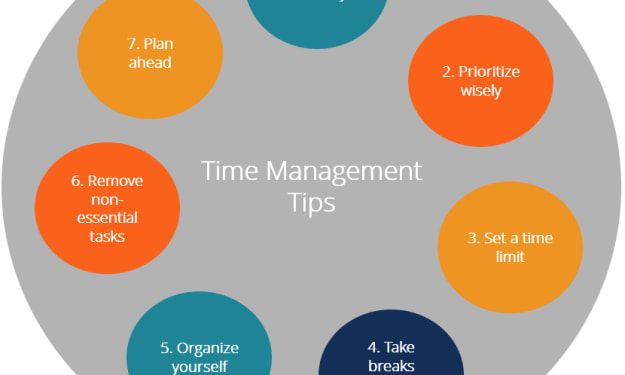Data Analytics for Climate Science
This blog post explores how data analytics is transforming climate science and how a data analytics course can equip you with the skills needed to contribute to this vital field.

Data analytics has become an indispensable tool in climate science, providing insights and solutions to one of the most pressing issues of our time: climate change. By analyzing vast amounts of climate data, scientists can better understand patterns, predict future trends, and develop strategies to mitigate adverse effects. This blog post explores how data analytics is transforming climate science and how a data analytics course can equip you with the skills needed to contribute to this vital field.
Understanding Climate Patterns: The Role of Data
Climate science relies heavily on understanding long-term weather patterns and their impacts on the environment. By using data analytics, scientists can analyze historical climate data to identify trends and anomalies. This process involves collecting data from various sources, including satellite imagery, weather stations, and ocean buoys.
Data analytics can help identify patterns in temperature changes, precipitation levels, and sea ice extent over decades. These insights are crucial for understanding how human activities influence the climate. By enrolling in a data analytics training, you can learn how to process and analyze this complex data, providing valuable information for climate research.
Predicting Future Climate Changes: Advanced Modeling Techniques
Predicting future climate changes is one of the most critical applications of data analytics in climate science. Advanced modeling techniques use historical data to simulate future climate scenarios, helping scientists anticipate changes in temperature, sea levels, and extreme weather events.
These models are essential for developing strategies to mitigate the impacts of climate change. For instance, data analytics can help predict the likelihood of more frequent and severe hurricanes, enabling communities to prepare better. A data analytics certification can teach you the advanced statistical and computational methods needed to develop and interpret these models, contributing to more accurate climate predictions.
Mitigating Climate Impacts: Informed Decision-Making
Data analytics provides the insights necessary for informed decision-making in climate mitigation efforts. By analyzing data on carbon emissions, energy consumption, and land use, policymakers can develop effective strategies to reduce greenhouse gas emissions and promote sustainable practices.
Data analytics can help identify the most significant sources of emissions and evaluate the effectiveness of different mitigation strategies. This information is vital for creating policies that balance economic growth with environmental sustainability. Taking a data analytics institute can equip you with the skills to analyze and interpret data for policy development, playing a crucial role in combating climate change.
Monitoring Environmental Changes: Real-Time Data Analysis
Real-time data analysis is crucial for monitoring ongoing environmental changes. Sensors and IoT devices collect data on various environmental parameters, such as air quality, water levels, and soil moisture. Data analytics helps process this real-time data, providing immediate insights into environmental conditions.
Data analytics can monitor deforestation rates in real-time, enabling swift action to prevent illegal logging. Similarly, it can track changes in air quality, alerting authorities to hazardous pollution levels. A data analytics course can teach you how to handle real-time data and use it for environmental monitoring, ensuring timely and effective responses to environmental threats.
Enhancing Public Awareness: Data Visualization and Communication
Communicating climate data to the public is essential for raising awareness and driving action. Data analytics plays a crucial role in this by creating compelling visualizations that make complex data accessible and understandable. Tools like graphs, maps, and interactive dashboards help illustrate the impacts of climate change and the importance of mitigation efforts.
Data visualizations can show the projected rise in sea levels and its potential impact on coastal communities. These visual tools can be powerful in educating the public and influencing policy decisions. Enrolling in a data analytics course can help you develop the skills needed to create effective data visualizations, enhancing public understanding of climate science.
The Future of Climate Science: Embracing Data Analytics
The future of climate science lies in the effective use of data analytics. As climate data continues to grow in volume and complexity, the need for skilled data analysts becomes increasingly important. By leveraging data analytics, scientists can make more accurate predictions, develop better mitigation strategies, and communicate their findings more effectively.
Whether you're a student interested in climate science or a professional looking to expand your skills, a data analytics course can provide the knowledge and tools needed to make a significant impact. By understanding and applying data analytics techniques, you can contribute to solving one of the most critical challenges facing humanity today.
Data analytics is revolutionizing climate science, offering new ways to understand, predict, and mitigate the impacts of climate change. From analyzing historical climate patterns to predicting future scenarios and monitoring real-time environmental changes, the applications of data analytics are vast and essential.
By taking a data analytics course, you can gain the skills necessary to contribute to this vital field. Whether you're interested in research, policy development, or public communication, data analytics offers powerful tools to enhance your work and drive positive change. As we face the challenges of climate change, the integration of data analytics in climate science will be crucial for building a sustainable and resilient future.
About the Creator
Enjoyed the story? Support the Creator.
Subscribe for free to receive all their stories in your feed. You could also pledge your support or give them a one-off tip, letting them know you appreciate their work.





Comments
There are no comments for this story
Be the first to respond and start the conversation.